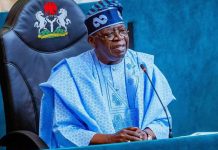Ahead of the 2023 presidential election, the clamour for the zoning of the presidency has intensified. The zoning arrangement in the Fourth Republic has a unique historical antecedent. Its genesis can be traced to the annulment of the June 12, 1993, presidential election. The annulment not only led to a major political upheaval but also created a deep sense of injustice on the part of the geo-political zone from whence the winner came. To assuage the ensuing sense of grievance, the two main political parties that emerged to lead the transition from the military to civilian rule in 1999 reached a consensus that allowed the presidential candidates from the two major parties to emerge from the South-West geo-political zone.
Thus, zoning in its current incarnation was born. There was, however, a precursor to the arrangement. During the Second Republic, there was an informal albeit determined effort to zone high elective positions, President, Vice-President, Senate President, Deputy Senate President, Speaker of the House of Representatives and the Deputy Speaker, to the various geo-political zones in order to reflect federal character and inclusive politics. The early years of the Fourth Republic also adopted that practice. Federal character principle was introduced not to appease any group but to promote national cohesion and promote a sense of belonging to citizens from all parts of the country. While federal character is entrenched in the 1999 Constitution (as Amended), zoning is not. Nonetheless, both are predicated on the same central organising principle, namely, political inclusivity and national cohesion in a secular, multiethnic, multi-religious and multicultural mosaic, in order to achieve fair and equitable representation.
While zoning may have emerged as a product of necessity, it represents in its expediency a pragmatic response to nation-building. There is growing evidence that countries that have made much progress in nation-building achieve greater strides in economic development. This is mainly because such countries would have achieved consensus on, and developed institutional and political arrangements for, creatively managing their diversity. The outbreak, persistence and multiplicity of security challenges in Nigeria in recent years, is proof of Nigeria’s dismal record in, and lack of elite consensus on national-building.
Along with national security and economic management, nation-building is one of the most important tasks of political leaders, especially the President in a country such as Nigeria. Nation-building requires striking a balance between efficiency and equity. Unfortunately, Nigeria’s political processes lack both. The principle of zoning is designed to ensure that no part of the country is ever permanently excluded from power and that no national party is perceived as representing one section of the country. Despite its many advantages, in particular, as regards nation-building, zoning remains a contested arrangement in Nigeria. Why is that the case? And can zoning produce an effective leader?
The three main arguments advanced by those opposed to zoning are that it undercuts the freedom to choose, fosters mediocrity on the nation at the highest level of government, and deprives the nation of effective leadership. These arguments have limited validity. Zoning does not eliminate the freedom to choose. Instead, zoning is a creative equitable power rotation in the spirit of nation-building. In the 1999 presidential electoral contest, the South-West produced two formidable candidates who could not be adjudged mediocres by any stretch of the imagination. The administration that came to power in 2007 marked the first time that Nigeria had two leaders with advanced degrees and considerable governance experience at the state level. But there is an unstated reason why some oppose zoning: to preserve power for themselves or their group. To such primordial power-hoggers, nation-building and promoting inclusivity rank very low in their political considerations.
To be certain, some Nigerian leaders have displayed huge nepotistic tendencies. This may be attributed to the provisions of Article 131 (d) of the 1999 Constitution that set the educational qualification “at least the school certificate level or its equivalent.” There are many obvious limitations in thought, knowledge and cosmopolitan orientation that come with that low level of educational attainment. This provision should not have found a place in the Constitution of Nigeria written on the eve of the 21st century.
This also elicits a heady question: Can zoning arrangement produce an effective leader? Three core issues need to be considered. First, there is no geopolitical zone that cannot boast of prima facie qualified and competent presidential candidates. Second, effective leadership is a function of skills, knowledge and experience. By failing to rotate political power, the country deprives itself of the experience and expertise of such persons. Third, Nigerian leaders and citizens evince much pride when their compatriots make progress in the political and other spheres in foreign countries. Yet, these same people could be deemed unworthy to lead the country, mainly because of their geo-political zone. This calls to mind an assertion made about President Barack Obama that, in Kenya, he could not have become a President because of his region of origin. At this juncture in Nigeria’s political development, zoning can help overcome whatever such barriers may be.
It is worth recalling that the 1994 draft constitutional conference report, which was signed by Gen. Sani Abacha in 1995, proposed an arrangement under which each of the six zones would have had the presidency for five years, with a review of the arrangement after 30 years. That arrangement faltered due to the sudden leadership changes towards the end of the political transition. In essence, it reflected a profound commitment to nation-building. This shows that, just over quarter of century ago, there was an elite consensus on this issue that has become controversial. Nigeria has now reached the fork in the road on its political journey. To move forward in the spirit of reconciliation, the South East should be given the opportunity to present the candidates for the 2023 presidential election. As the draft 1994 report envisaged, the time will come to review the zoning arrangement. That time is not now.
•Otobo is a non-resident senior fellow at the Global Governance Institute, Brussels; Obaze is managing director and chief executive officer, Selonnes Consult, Awka






